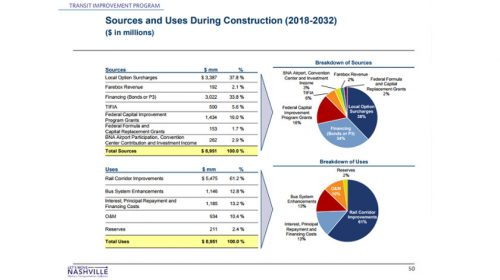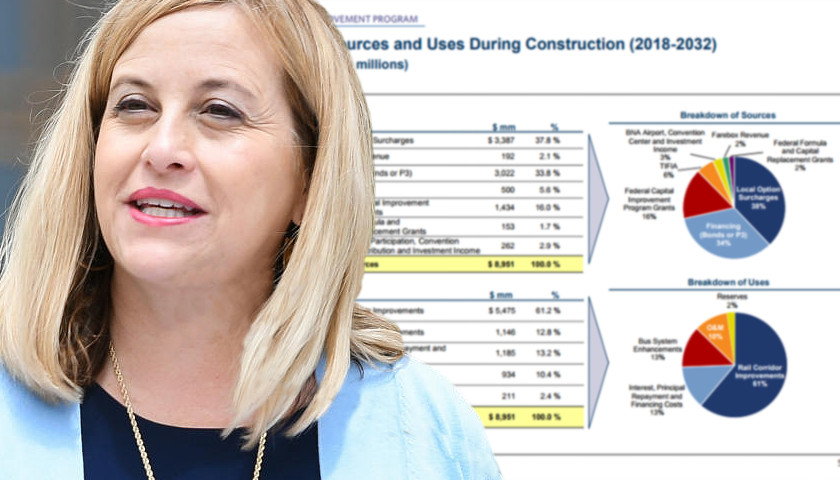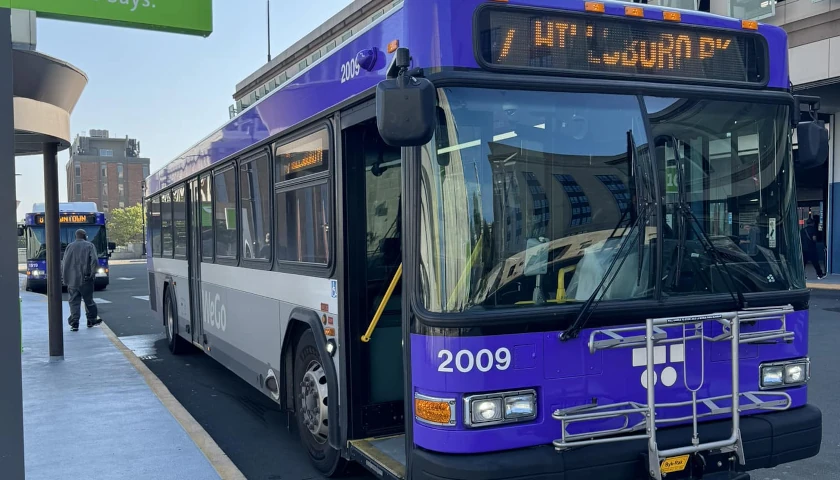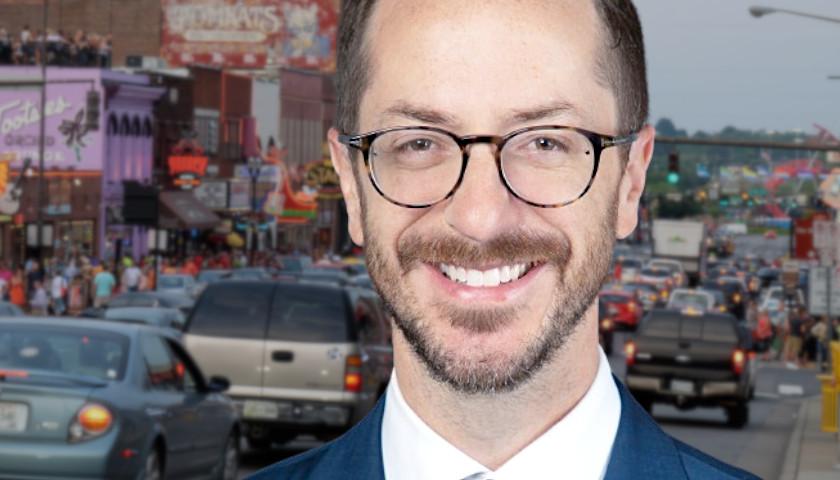Nashville Mayor Megan Barry’s transit plan has been presented as having a cost of $5.4 billion during the 15 year construction plan through 2032. But that figure represents just the rail corridor improvements portion of the plan. But, in reality, he total cost is a whopping $8.95 Billion.
The figures for costs and revenues were provided in greater detail within the Let’s Move Nashville Metro’s Transportation Solution Transit Improvement Program document dated December 13, 2017.

In addition to the $5.4 Billion for the rail corridor improvements, which quickly increased from the original $5.1 Billion to address an extension to the Charlotte Avenue route, is $1.146 Billion for Bus System Enhancements, $1.185 for Interest, Principal and Financing Costs, $934 Million for Operation and Maintenance and $211 Million for Reserves for a grand total of $8.951 Billion.
The corresponding $8.951 Billion in revenues are said to come from Local Option Surcharges of $3.387 Billion, Financing of $3.022 Billion, Federal Capital Improvement Program Grants of $1.434 Billion, TIFIA (Transportation Infrastructure Finance and Innovation Act) of $500 Million, Contributions from BNA Airport, the Convention Center and Investment Income of $262 Million, Federal Formula and Capital Replacement Grants of $153 Million and Farebox Recovery, otherwise known as the user fee, of $192 Million.
The Local Option Surcharge comes from the increases in four existing taxes: Local Sales Tax will increase 0.5 percent 2018 and one percent in 2023; Hospitality (hotel) Tax will increase 0.25 percent in 2018 and 0.375 percent in 2023; Business Tax will increase 20 percent in 2020; and, Rental Car Tax increase of 20 percent in 2018.
The Local Option Surcharge portion of the funding for the transit improvements, at 37.8 percent of the revenue source is the largest portion of the funding, along with the entire concept of transit improvement plans was enabled by Governor Haslam’s IMPROVE Act, passed by the Tennessee General Assembly during the 2017 legislative session.
Throughout the legislature discussion of the IMPROVE Act, the argument in favor of the gas and diesel tax increases was that they are “user fees,” and that user fees should fund road projects.
Yet, in the case of Mayor Barry’s Let’s Move Nashville transit plan, the $192 million in revenues projected to come from the Farebox Revenue user fee represents a mere 2.1 percent.
Conversely, the increase in the local sales tax, which makes up the single largest portion of the transit plan funding, will reach a sky-high 10.25 percent in 2023, tying it with Chicago for the country’s highest sales tax.
The transit plan also relies heavily on funding from the Federal government, with an estimated amount in excess of $2 Billion, or more than 23 percent. Yet, just this week President Trump scrapped an Obama era proposal for the federal government to cover half the cost of a $13 Billion Amtrak tunnel between New Jersey and New York. The Federal Transit Administration Deputy Administrator alluded to the responsibility for funding of a “local project where nine out of 10 passengers are local transit riders,” which also reflects the situation for Nashville’s transit plan.
One other shaky portion of the funding proposal relates to the long-term financing or bonds. The December 13 plan calls for $1.185 Billion or 13.2 percent of the costs to go toward Interest, Principal and Financing Costs. But the plan also allows for the issuance of additional debt “on June 1 of any year” in order to “meet funding gap.”
As it is, the planned debt will take 30 years to pay off with an interest rate of 5.5 percent. All the borrowed money will incur costly issuance expenses of 1 percent plus $1 million per bond issuance, and taxpayers could be on the hook for even more debt and the associated expenses if any of the anticipated funding sources fall short of the transit plan’s projections.






Really you are in charge now….. Your job is to represent the city of Nashville not be dictator ! Your time is limited as Mayor! Good Bye , Megan Barry
Nashville has no leadership will be another Detroit.
Dammit , I’m in charge now! You’ll do as I say.
Reminds me of when I lived in Houston and the local bigwigs wanted to build a new football stadium to replace the Astrodome. This was put to a vote with (if my memory serves correctly) an advertised cost of under $400 million. That was a big enough boondoggle but the fine print (which was kept hush-hush by the local media) included approval for a baseball stadium and another arena for basketball and other events. I cannot recall the final advertised price tag but it well exceeded $1 billion… and I believe that was only the direct cost of the building the structures. The hoodwinked citizenry approved the expenditure by a few percentage points. Then the real cost was brought out of the darkness. Bu, alas, the taxpayers were stuck with the projects. Mayor Berry, we citizens have seen behind your magic curtain and there is NO wizard back there, but just a liberal political hack and neither is there a pot of gold back there to pay for you idiotic scheme.